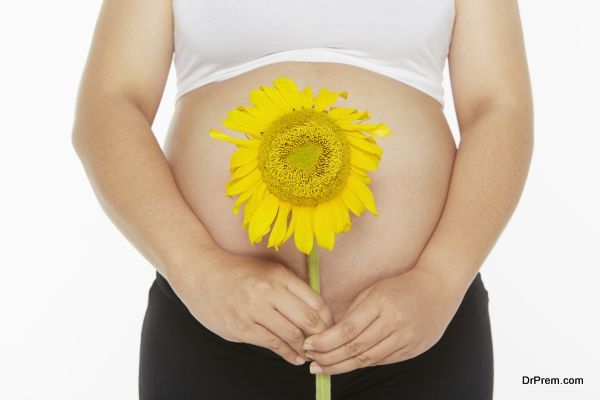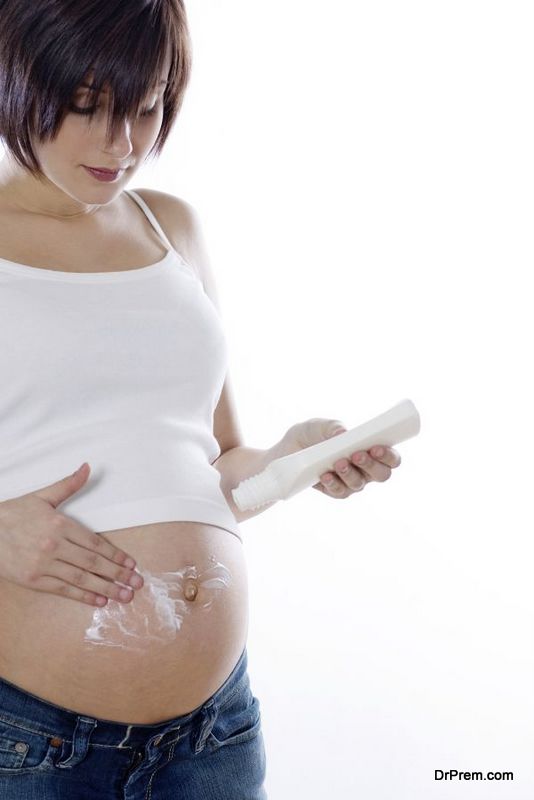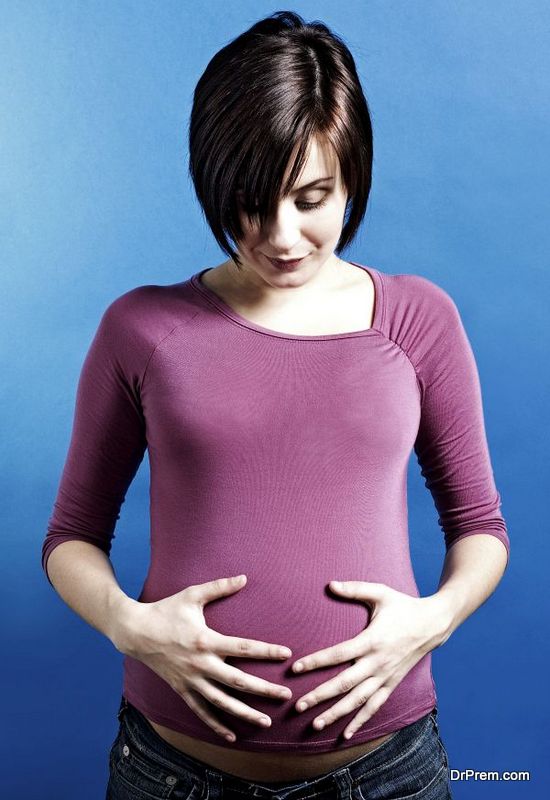Would-be-mom’s allergy to placenta – a thing rarely heard, but when it happens it creates a hell of life. Placental allergy, known as pemphigoid gestationis, is the rarest of pregnancy blues that attacks one in every 2 million pregnancy cases with US showing a slightly higher incidence. Studies showed that Caucasian women are more prone to this type of allergy than other ethnic races. The reasons for this pregnancy related disorder are yet to be clearly established but it is concluded a sort of autoimmune disease arising due to placental tissue entering the mother’s blood stream or may be due to high estrogen levels in the later stages of pregnancy.
Symptoms and signs
Pruritic rashes start appearing from the umbilicus and gradually spread to other parts of abdomen. The rashes are marked by large painful blisters producing a continuous urge for scratching. Not only severe itching, but burning sensation prevails in the affected areas and the skin starts peeling off due to frequent scratching. The rash spreads down the limbs affecting the buttocks as well. Luckily, it spares the face and mucous membranes.
Often the symptoms are confused with scabies, a highly contagious skin disorder producing severe itching. The symptoms may appear after the 1st trimester and worsen during labor. Post labor, the symptoms die off again to reappear after a week or two and it may continue to disturb for years after child birth. Pemphigoid Gestationis can also be a postpartum development.
Diagnosis
Diagnosis of PG is very important as it is often confused clinically with scabies or other forms of pregnancy rashes with almost similar itching symptoms. But the marked difference in case of PG is that the rashes initiate from the umbilicus.
Treatment
Pemphigoid Gestationis treatment involves the following depending upon the severity of the condition. It aims primarily in reducing the itching and preventing secondary infections which may arise due to frequent scratching.
- Topical application of corticosteroids if the symptoms are not that severe
- Oral corticosteroids are prescribed in restricted doses in extreme cases. These should be taken with utmost caution so as not to cause any side effects to the mother and the fetus.
- Oral histamines are also prescribed to relieve itching.
- Intravenous immunoglobulin has been found to be another effective treatment
- Azathioprine or ciclosporin, the immunosuppressive medications are used with caution regarding the safety consideration of pregnancy and breastfeeding.
Tips for pregnant women
Taking care of pruritus (itchy skin) during pregnancy, especially around the expanding abdomen, is a very common phenomenon which necessarily need not be pemphigoid gestationis but may be due to other reasons like dry skin andfluctuating estrogen levels. Any pregnancy related itching can be managed at home adopting some safety measures.
- Avoid hot showers
If it is severe winter, you can’t help. But try not to take too much hot showers as it robs the natural moisture of the skin leading to dryness and subsequently creating favorable conditions for itchy skin.
- Careful choice of soaps and shower gels
Strongly perfumed soaps and shower gels may be your favorite but are not the right choice for body cleansing in pregnancy. These chemical-loaded bathing gels bleach your skin stripping the natural oily layer causing allergy. Use herbal bath soaps devoid of strong chemicals.
- Avoid exposure to heat and sunlight
If you need to step outdoors in daytime, you have no way but to cover yourself properly to prevent your skin’s exposure to harmful UV rays of the sun. Regular exposure to UV rays in pregnancy can cause skin itching. While using the room heater, maintain the same caution so as not to stay in a hot condition for hours.
- Opt for oatmeal bath
Colloidal oatmeal bathing solutions are readily available in stores. Using this in bathing water is an effective way to treat the itchy skin.
- Maintain absolute cleanliness
Absolute hygiene during pregnancy is a must to avoid fungal infections which is a common cause of itchy skin during pregnancy.
- Select the right moisturizer and creams
Heavily perfumed skin moisturizers can trigger itchy rashes in pregnancy. Water based moisturizers can produce more soothing effect when applied properly.
Allergy to placenta or pemphigoid gestationis, the rarest of pregnancy disorder can be managed well through proper medications and self care.







